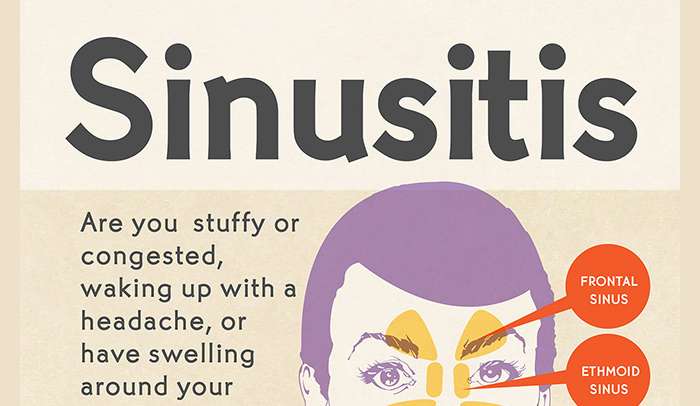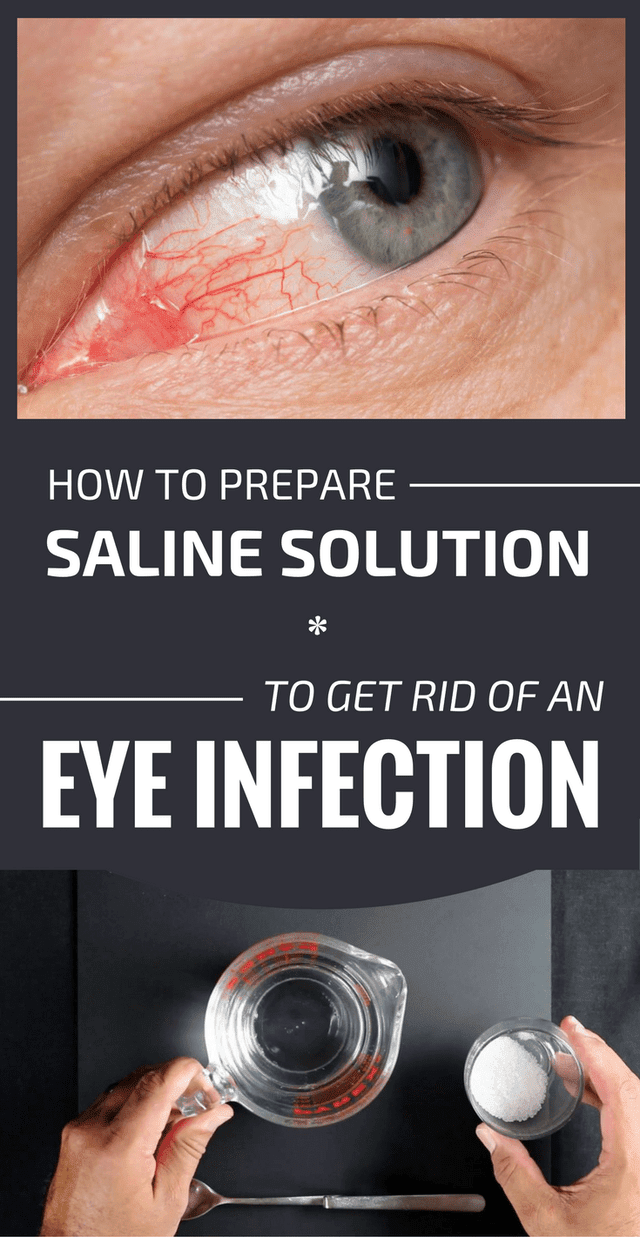How To Avoid Spreading Sinus Infections
Sinusitis can easily develop as a result of a cold or virus, so spreading these illnesses puts other people at risk of developing a sinus infection. Viruses are spread by breathing in small droplets of water in the air, and also by touching surfaces where these bacteria are lingering. A sinus infection caused by a viral infection lasts about seven to 10 days, meaning you can be contagious with the virus for up to two weeks.
You can avoid spreading a cold by wearing a mask while you are sick, covering your mouth when you cough or sneeze, and washing your hands frequently with soap and hot water.
Treating A Viral Or Bacterial Sinus Infection
How you treat a sinus infection depends on whether bacteria or a virus is to blame. In the case of a viral infection, your surgeon or doctor is likely to recommend a wait and see approach, since there is no type of medicine that will kill the virus and speed up healing.
While you do have to wait for a virus to clear up on its own, there are some things you can do to make yourself more comfortable in the meantime. Your surgeon might recommend using a saline rinse in your nostrils to help clear away mucus and debris. Pain relievers can also reduce any discomfort youre experiencing due to headaches or facial pain. A pain reliever can also help lower a fever.
Medicine is available to treat a bacterial sinus infection. If your surgeon determines that bacteria is the source of your infection, he might prescribe antibiotics to kill the bacteria and speed up healing. Depending on the type of bacteria thats causing the infection, you might need to take antibiotics for just a few days or for a few weeks.
Theres one thing thats important to understand about antibiotics: They wont help viral infections at all. In fact, they might make things worse. While they wont exacerbate the infection, antibiotics can cause some unpleasant side effects. They can also lead to antibiotic resistance, making future bacterial infections more difficult to treat. Its important only to take antibiotics if your doctor prescribes them.
Understanding Bacterial Sinus Infections
Bacterial sinus infections most often occur following a cold or flu when the sinuses have become blocked or filled with mucus. The inability for a blocked sinus to drain combined with the naturally warm, moist environment create optimal conditions for bacteria to grow and spread, eventually turning into a sinus infection.
The most common bacteria associated with sinus infections include:
- Haemophilus influenzae
- Staphylococcus aureus
- Streptococcus pneumonia
Bacterial sinus infections are more likely to be found in individuals who have symptoms for 10 to 14 days or exhibit more severe symptoms, such as a fever of 102 degrees Fahrenheit or higher as well as facial pain lasting more than four days.
Although bacterial sinus infections can be more severe and last longer, they actually arent contagious. You cant spread the bacteria causing the sinus infection.
Also Check: How To Clear Sinus Infection At Home
How To Treat A Sinus Infection
When you develop a sinus infection, you can do several things on your own to ease your symptoms. Dr. Varghese recommends, over-the-counter pain relievers, decongestants, and nasal sprays. Humidifiers can also help.
Here are some other at-home remedies and commercially available medications to help you feel better:
- Over-the-counter antihistamines. Seasonal allergy medications can help reduce sinus inflammation if youre suffering from allergy-induced sinusitis.
- Warm compresses. Applying a warm compress to your face can help ease discomfort and open your nasal passages so you can breathe easier.
- Sinus rinses. Flushing your nose with water from a neti pot can help remove excess mucus from your sinuses, which will help you feel less congested.
What Is The Likelihood Of Getting Others Sick

Duration of symptoms can help determine the cause of infection and whether or not it is contagious. A sinus infection caused by a viral infection lasts about seven to 10 days, meaning youll be contagious with the virus for up to two weeks.
If your symptoms last more than 10 days, or if they subside after a week then return again a few days later, you likely have a bacterial sinus infection that cannot be spread. However, bacterial sinus infections are rare accounting for only about two percent of all sinus infections.
For more information about sinus infections or to schedule an appointment with an ENT physician, today.
Also Check: Best Way To Cure A Sinus Infection Without Antibiotics
The Symptoms Of A Sinus Infection
People often assume that its possible to tell the difference between a viral and bacterial sinus infection based on the type of symptoms they experience. Unfortunately, thats not the case. Usually, the symptoms of a sinus infection are the same or very similar whether its caused by bacteria or a virus.
Common symptoms of either a viral or bacterial sinus infection include green or yellow mucous/discharge, bad breath, headache, and fever.
When Does Antibiotic Resistance Occur
Antibiotic resistance occurs in a persons own body and within the community when certain drugs no longer work for a specific type of germ. This can occur when bacteria change in response to exposure to antibiotics so that the antibiotics no longer work efficiently against the bacteria.
Therefore, allergists and other specialists recommend limiting the use of antibiotics unless:
- Symptoms last over seven to 10 days
- Specific symptoms are present
- A fever is present
Recommended Reading: Ways To Clear Sinus Pressure
How Do You Get A Sinus Infection
A sinus infection can develop when there is swelling in the sinus cavities. If the sinuses become too swollen, they can narrow and become obstructedmaking it difficult for mucus to drain. When mucus builds and backs up within sinus passages, it can become infected and voilayou get a sinus infection. The most common cause of a sinus infection is a viral cold.
Like any virus, the virus that causes the common cold is highly contagious. However, thankfully, every cold does not develop into a sinus infection. So while viral sinus infections are caused by cold viruses which are indeed very contagious, the sinus infections that result, are not contagious. If you get a viral sinus infection, it should resolve on its own within two weeks.
You may be thinking, wait I thought the only way to clear up a sinus infection was by taking antibiotics. Nope, not true. Viral sinus infections wont respond to antibiotics. And taking antibiotics when you dont need to can be dangerous and contribute to antibiotic resistance. However, in the case where your sinus infection was spurred by a bacterial infection, antibiotics are exactly what you need to fight the infection.
How Long Does It Take For A Sinus Infection To Go Away Can They Be Cured
A person may be “cured” of a sinus infection when the symptoms stop, usually after about 3 weeks. However, a “cure” often is temporary in some people that either have chronic or recurrent sinus infections. Bacterial sinus infections may benefit from antibiotics , but there is no antibiotic treatment for viral sinusitis.
Also Check: What Is The Best Medicine For Sinus And Chest Congestion
Common Antibiotics For Sinus Infections
Antibiotics may be prescribed when symptoms of a sinus infection warrant such treatment. Common antibiotics for sinus infection include:
- Zithromax
- Levaquin : Although this drug is often prescribed as a first line of therapy for sinusitis, it has serious side effects and should only be used as a last resort.
Most Sinus Infections Dont Require Antibiotics
Ah, . The New England Journal of Medicine published a clinical practice review of acute sinus infections in adults, that is, sinus infections of up to four weeks. The need for an updated review was likely spurred by the disconcerting fact that while the vast majority of acute sinus infections will improve or even clear on their own without antibiotics within one to two weeks, most end up being treated with antibiotics.
It is this discrepancy that has clinical researchers and public health folks jumping up and down in alarm, because more unnecessary prescriptions for antibiotics mean more side effects and higher bacterial resistance rates. But on the other hand, while 85% of sinus infections improve or clear on their own, theres the 15% that do not. Potential complications are rare, but serious, and include brain infections, even abscesses.
Don’t Miss: Vitamins To Prevent Sinus Infections
How Is Sinusitis Spread
You can get it the same way you get cold and flu — by breathing it in or passing it from your hands to your mouth after touching something. Viruses get in the air after someone who is sick sneezes or coughs. They also can be passed on when someone shakes hands with someone who is sick or touches a doorknob or anything else the sick person has touched.
To keep from getting a virus, wash your hands often with soap and water. Try not to touch your eyes, nose, and mouth. Try to avoid people you have cold- and flu-like symptoms.
If you have sinusitis, cover your mouth and nose when you cough or sneeze, and wash your hands to avoid making anyone sick.
Show Sources
Video Answer: How Long Does Kennel Cough Last

Giving probiotic supplements to your dog while they are taking antibiotics will help restore and maintain good bacteria levels in their intestines while significantly improving immune system functioning to facilitate elimination of an infection.
Prevents diarrhea caused by antibiotic use.
Antibiotics will kill many bacterial probiotics because the Antibiotics cannot distinguish between helpful and harmful bacteria.
In fact, studies have shown that when giving S boulardii along with an antibiotic, pets are much less likely to develop diarrhea during or after the course of Antibiotics.
Recommended Reading: Sinus Headache High Blood Pressure
Add A Comment5 Comments
My Dr diagnosed me with pneumonia, I’ve been on antibiotic for a little over 2 days. Am I still contagious? I still need to blow my nose and am coughing up mucus. Could you tell me your expertise? Thanks so much.
is MRSA contagious if sick person is taking antibiotics ?
Cindy, good question, thanks for asking!
It really depends on the infection or illness that you are talking about. Many things that a person would be on antibiotics for are not contagious — ear infections, or sinus infections, etc.
And many things that are contagious are not something you’d take antibiotics for — a cold, for instance, or chicken pox. Even if a doctor has prescribed you antibiotics for a secondary infection the cold is still contagious as long as you are sneezing and coughing .
Usually, the a general guideline would be that a person is not contagious after 48 hours’ worth of antibiotics. With strep throat, a general guideline is 24 hours.
Are There Different Types Of Sinus Infections
There are many different types of sinus infections, but they all have one thing in common: they are caused by bacteria or viruses and can be very contagious. Some other examples include colds/flu as well as ear infections if an infection spreads from your nose into these areas where theres poor circulation due to being clogged up with mucus and or fluids stagnant stagnancy due to congestion not draining properly on its own/ with the help of gravity downwards facilitating movement aka aided by a bulb syringe aspirator nasal irrigation system cleaning out the passages without needing to lean over in a seated position while tilting your head sideways, inserted into one nostril at a time flushing it out regularly and as needed rinsing off the infected area with lukewarm sterile saline water , using either over-the-counter or prescription medications.
Read Also: Medicine That Helps With Sinus Infection
How To Prevent The Spread Of Contagious Sinus Infections
If you have a sinus infection, do your best to prevent the spread of any viruses that could get others sick. While the best thing would be to isolate yourself until you feel better, thats not always feasible or rational. Some easy precautions you can take to reduce the potential spread of sinusitis and respiratory viruses in general include:
- Thoroughly washing your hands in soap and water after sneezing, coughing, or blowing your nose
- Using hand sanitizer to disinfect your hands
- Stay home from work or school
- Covering your mouth when you cough or sneeze
- Wearing a face mask
Above all, make sure you see your doctor if you need any form of relief, develop a persistent fever, or have a history of chronic or recurrent sinus infections. You should also see your doctor immediately if you have:
- Severe, sharp headaches
What Is The Best Acute Sinusitis Treatment
Many patients try to treat their acute sinusitis symptoms with urgent care appointments, over-the-counter medicines, or other natural remedies. Unfortunately, these methods dont always work, and the sinus infections often come back.
More and more patients are finding lasting sinusitis relief with balloon sinus dilation in Houston, or balloon sinuplasty for short. This in-office, non-invasive procedure can be completed in as few as 21 minutes.
Dr. Kaplan specializes in balloon sinuplasty, and has helped thousands of Houstonians like you find lasting relief. Leave behind your worries of contagious acute sinusitis. Schedule an appointment today to say goodbye to sinus infections.
Don’t Miss: Advil Cold And Sinus Side Effects
Should You Treat A Sinus Infection With Antibiotics
Over the past few months Ive seen patient after patient drag themselves to the clinic with coughing, sneezing, headaches and green or yellow nasal discharge, sometimes accompanied by ear and tooth pain. Some people with infection may experience fevers, chills or night sweats signs that the body is fighting a virus or bacteria. These are symptoms I expect as a primary care doctor especially during the spring seasons. They are the telltale signs of sinusitis. But if that sums up symptoms you have, do you need antibiotics? The question may be more complicated than you think.
Each year, more than 30 million Americans endure sinusitis an inflammation of sinus spaces surrounding the nose that makes it difficult to drain fluid that normally flows through the sinuses. Much like a detective weighing clues, us health providers use symptom severity and duration to determine the cause of a patients sickness.
The World Health Organization has called antibiotic resistance one of the biggest threats to global health, saying misuse of antibiotics in humans and animals is accelerating the process.
At a health professionals discretion, antibiotics can be prescribed if a person appears very sick or has any underlying chronic disease that may make them prone to becoming sicker.
Diagnosis Of Sinus Infection
To diagnose if you have a sinus infection, your doctor will ask about your symptoms and their timeframe, and give you a physical exam.
This exam may include looking in the nose for signs of polyps, conducting a transillumination test to identify inflammation, and tapping the sinus area to detect infections.
If you have a chronic sinus infection, your doctor may conduct additional tests, including:
- Rhinoscopy or nasal endoscopy to inspect your sinuses and see if your membranes are inflamed
- Mucus cultures to determine what is specifically causing your infection
- Allergy tests to determine what allergens may be triggering your chronic or recurrent infections
- CT scan to identify sinus abnormalities, such as polyps or a deviated septum
- MRI scan to see if you have a nasal tumor or fungal infection
If you have a serious fungal sinus infection, your doctor may order a bone biopsy to see if the infection has penetrated your bones.
Don’t Miss: Best Over The Counter Allergy Sinus Medicine
Types Of Sinus Infections
There are several types of sinus infections, which are classified by duration.
They include the following:
- Acute infections that last for about 4 or less weeks
- Subacute infections that last for about 4 12 weeks
- Chronic infections that last for longer than 12 weeks
- Recurrent infections that occur several times a year
Additionally, each type of sinus infection has several potential causes, including bacteria, viruses, or fungi.
Some cases of sinusitis occur with only swelling and inflammation due to blockages in the nasal passages or deformities in the sinus cavities. Allergies and chronic exposure to pollutants can also lead to sinus infections.
Sinus infections often feel like a bad cold. It may be difficult for people to distinguish between a cold and a sinus infection. Some of the most common symptoms resemble a cold. These include:
- pressure in the sinus cavities
Sinus infections caused by bacteria have a few additional symptoms. These symptoms include:
- pus-like or thick nasal discharge
- symptoms lasting longer than a week
- facial pain
For most sinus infections, treatment focuses primarily on symptom relief. There are many options available to relieve bothersome symptoms.
These include:
- nasal irrigation to reduce mucus drainage and remove irritants
- medicated nasal sprays containing corticosteroids that reduce inflammation
- oral steroids for more severe infections
Some of the most common over-the-counter treatments to help treat sinus infections include:
When To See A Doctor

Any person who experiences pain and pressure in the sinuses for longer than a week should seek medical attention. They should also address a persistent fever or a cough if they do not get better over time.
A doctor will perform an assessment of a person with these symptoms. Part of the assessment will be determining any history of sinus infections in the individual, as well as doing a physical examination.
A doctor will look for the following signs of sinus infections:
- swelling of nasal passages and tissues
- redness in the nasal passages
- bad breath
Also Check: Premier Allergy Asthma And Sinus Care